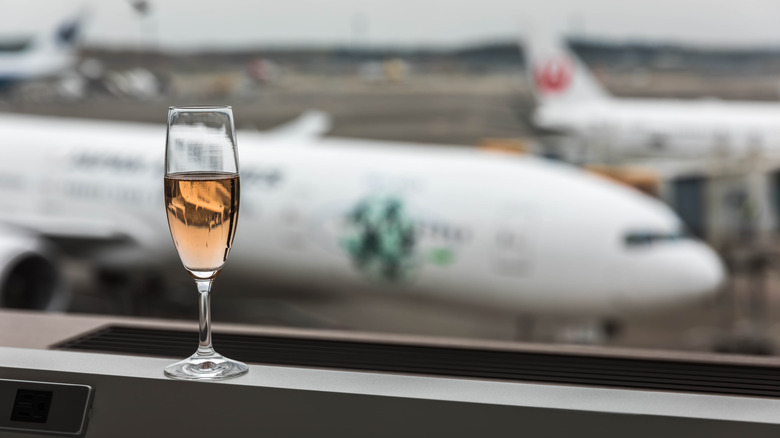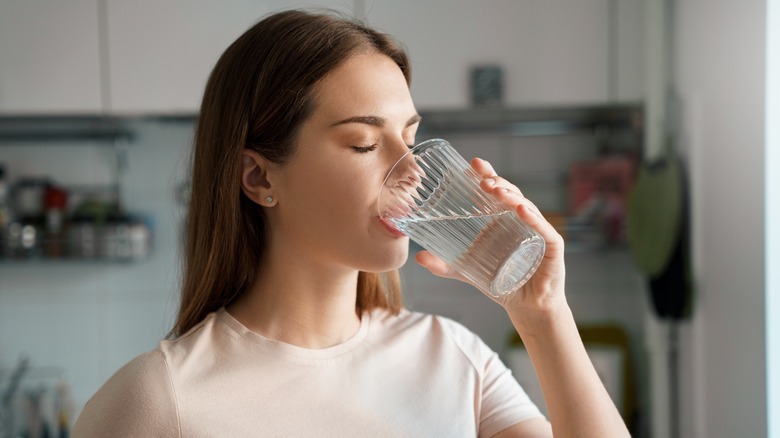Why You Should Never Buy Alcoholic Drinks At An Airport
There are a lot of different phobias or fears that affect many people around the world. Fears are generally broken down into five groups: fear of animals; fear of medical issues, blood, or injuries; fear of certain situations; fear of the environment; and others, such as drowning, choking, or loud noises, per Healthline. Each fear has its own name, too. For example, achluophobia is the fear of darkness, acrophobia is the fear of heights, catoptrophobia is the fear of mirrors, octophobia is the fear of the number eight, and phobophobia is the fear of phobias.
One common fear is aerophobia, which is the fear of flying. In the United States, about 25 million adults have aerophobia (via Psycom). A few ways to handle aerophobia include exposure therapy, cognitive behavioral therapy, and prescribed medication for anxiety. However, some people may turn to a glass of wine or a shot of tequila as a way of coping with their fear of flying. This sounds great in theory, but it's probably not for the best since alcohol affects your body differently when you're 31,000 to 38,000 feet in the air, per Time. Here's exactly why you should never buy alcoholic drinks at an airport.
Alcohol is a diuretic and could lead to dehydration
The biggest and most important reason to not drink alcohol is that it's a diuretic, meaning you'll have to go pee more often (via Healthline). It's important to know that the moisture in the air is extremely lacking in the cabins of aircraft, with humidity levels being less than 20%, per the World Health Organization. An average home humidity level is 30%, so because it's so much less on airplanes, your skin, eyes, mouth, and nose may feel dry. Combine the dry cabin air with the fact that alcohol also dehydrates your body, and you may be in some trouble.
If you do choose to drink before or during a flight, you can play it safe and drink less alcohol than you normally would on the ground, and be sure your body stays properly hydrated by drinking some water between sips of alcohol, according to KLM. In addition to the dry cabin air, the pressure in the cabin can cause the body to absorb oxygen slower, which can cause a light-headed feeling. So, if you do drink on a flight, you may feel light-headed and get drunk even quicker than on the ground. Perhaps it's best to wait and celebrate a successful landing with a beer or other alcoholic beverage rather than jump the gun and drink before.

